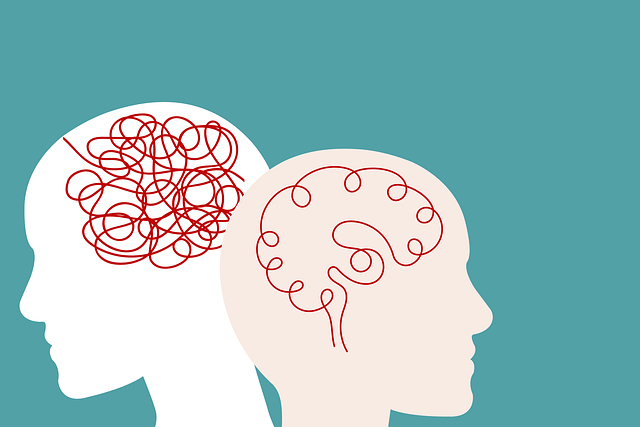Mental health advocacy, as demonstrated by Lafayette Eating Disorders Therapy (LEDT), transforms societal attitudes towards eating disorders, promoting early intervention and access to support. LEDT offers comprehensive care, community engagement, and education for body acceptance through personalized therapy and inclusive programs. Their strategies include self-awareness exercises and culturally sensitive mental health education, empowering individuals with emotional understanding and coping mechanisms while fostering trust and a non-judgmental environment. These initiatives drive positive change and raise awareness, ultimately improving care outcomes for those struggling with eating disorders.
Mental health advocacy initiatives play a pivotal role in shaping supportive communities. This article delves into the power of these efforts, highlighting how they raise awareness and challenge the stigma surrounding mental health issues. We present a case study of Lafayette Eating Disorders Therapy, showcasing community engagement and support as key drivers of success. Furthermore, we offer practical strategies for effective advocacy, emphasizing collaboration, education, and policy changes. By understanding and implementing these approaches, communities can foster open dialogues and improve access to care.
- Understanding Mental Health Advocacy: The Role in Raising Awareness and Breaking Stigma
- Lafayette Eating Disorders Therapy: A Case Study on Community Engagement and Support
- Effective Strategies for Successful Mental Health Advocacy Initiatives
Understanding Mental Health Advocacy: The Role in Raising Awareness and Breaking Stigma

Mental health advocacy plays a pivotal role in shaping public perception and fostering a more inclusive society. It involves raising awareness about various mental health conditions, challenging societal stigmas, and promoting understanding and empathy. Through powerful narratives, education, and community engagement, advocates work towards destigmatizing mental illness, ensuring individuals receive the support they need without fear of judgment. This is especially crucial in addressing issues like eating disorders, which often manifest from complex interplay of psychological, social, and cultural factors, as highlighted by Lafayette Eating Disorders Therapy.
Advocacy initiatives drive the development of public awareness campaigns that educate communities about mental health, coping skills, and available resources. Furthermore, these efforts extend to promoting Mental Wellness Coaching Programs, empowering individuals to take proactive steps toward managing their mental well-being. By breaking down barriers and fostering open conversations, advocacy paves the way for improved access to care, early intervention, and ultimately, better outcomes for those navigating mental health challenges.
Lafayette Eating Disorders Therapy: A Case Study on Community Engagement and Support

Lafayette Eating Disorders Therapy (LEDT) stands as a beacon of hope and healing within its community. This initiative focuses on addressing eating disorders, an issue that significantly impacts mental health and well-being. LEDT’s approach emphasizes community engagement, fostering a supportive environment for those struggling with these conditions. By implementing various programs and activities, they encourage emotional healing processes and promote self-care practices tailored to individual needs.
Through its efforts, LEDT not only provides therapy but also educates the public about the importance of positive thinking and body acceptance. The initiative’s success lies in its ability to create a safe space, where individuals can share their experiences without stigma. This inclusive approach has led to numerous positive outcomes, empowering individuals to take control of their mental health journeys and fostering a more compassionate community.
Effective Strategies for Successful Mental Health Advocacy Initiatives

Mental health advocacy initiatives are powerful tools for creating positive change and increasing awareness about various mental health concerns, including eating disorders like those treated at Lafayette Eating Disorders Therapy. Effective strategies include integrating Self-Awareness Exercises into community programs to empower individuals with a deeper understanding of their emotional well-being. By fostering self-reflection and introspection, these exercises can help participants identify triggers and develop coping mechanisms tailored to their unique needs.
Additionally, designing Mental Health Education Programs that are inclusive and culturally sensitive is vital. Healthcare Provider Cultural Competency Training plays a significant role in this aspect by equipping professionals with the skills to address mental health issues across diverse communities. This training ensures that advocates and healthcare providers can offer relevant support while respecting different cultural backgrounds, thereby fostering trust and encouraging individuals to seek help without barriers.
Mental health advocacy initiatives, as exemplified by Lafayette Eating Disorders Therapy, play a pivotal role in fostering community engagement and support. By raising awareness and breaking down stigma, these efforts create a more inclusive environment where individuals can access the help they need. Incorporating effective strategies discussed in this article can empower advocates to make a tangible difference, ensuring that mental health services are accessible, understood, and appreciated on a broader scale.














